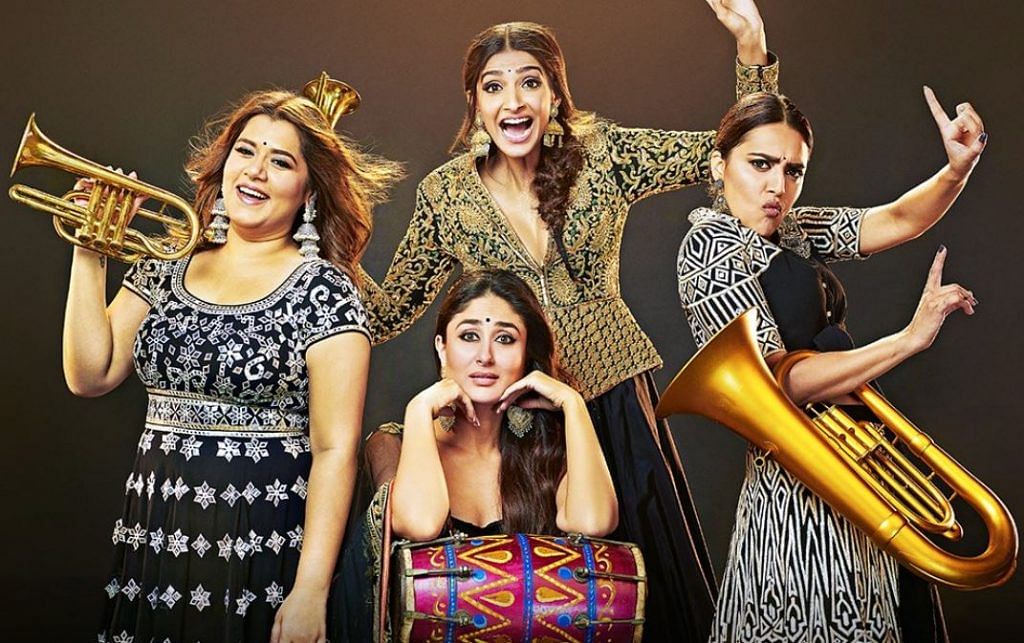The movie’s trailer and song objectify men the same way women have been objectified in Bollywood for decades.
The recently released, profanity-laden trailer of the multi-starter Veere Di Wedding (or #notachickflick, as those involved in it like to call it) tries to depict the new-age Indian woman and celebrate female bonding.
Only, it does not.
The trailer is a very evident attempt to paint the movie as uplifting, empowering and women-centric — unlike regular ‘chickflicks’. The film’s women try to position themselves as the poster-children for the 21st century — the cool, rich, urban Indian woman who is living it up. The characters drink, go to clubs, drive, aren’t shy of sexuality, and not defined by the men around them.
Now, the movie has come out with a song called ‘Tareefan’, which features all the female leads of the movie.
While the portrayal of the song and the trailer seemed progressive initially, the reality seems so deeply twisted, and the language so misogynistic, that the movie seems to defeat its central theme.
But more importantly and disturbingly, it is a reflection of our skewed understanding of gender and empowerment.
The song objectifies men the same way women have been objectified in Bollywood for decades. There are visuals of multiple, semi-naked, faceless men in bed with Kareena Kapoor, and a man wearing just a strategically placed towel who is eyed by Sonam Kapoor. At one point, Swara Bhaskar casually spanks a man’s butt.
How can objectification in any form be normalised to this extent? Is one-upmanship and blatant, mindless reversal of gender roles all we seek as women?
My problem with the song is also the depiction of ‘empowerment’. The women attempt to embody characteristics of traditional masculinity, both through objectification and more. They are repeatedly shown as excessively in control, the centre of attention and affection of several men, treating others around as secondary and even physically fighting one another in a bar.
Why do we have to imbibe the worst of toxic, male behaviour to feel empowered? Why does our definition of fun and strength always come from the (low) standard set by men? Why can’t a softer, sensitive portrayal be powerful? We are actually celebrating masculinity, just putting faces of women to it.
The most ironic part are the lyrics to ‘Tareefan’. The man sings to the woman -“Hor dus kiniyan tareefen chahidyan tainu (Tell me how many more praises do your want)?” This is a classic reinforcement of gender stereotypes. It builds on the notion that the way to a woman’s heart is only through tareefan or giving her validation.
Badshah’s rap is especially problematic — there are repeated references to a woman’s derriere — from calling it “lean” to “Jeans hai dalli joh voh teri booty pe tight (You’re wearing jeans that are tight around your buttocks)”. Then, as he speaks about a woman’s body parts that he considers perfect and others consider flawed, the camera zooms in on Sonam Kapoor’s breasts (Catering to the male gaze, again, are we?).
It gets more ridiculous, sometimes making me wonder whether the lyrics were inspired by stereotypical WhatsApp wife jokes. “Dieting pe hai toh kyun khatti bhav (If you’re on diet, why are you showing attitude?)” asks Badhshah.
As the song ends, I only wonder: Have we internalised misogyny to such an extent that we don’t even recognise it anymore? Bollywood needs better education. Maybe a sociology class?
